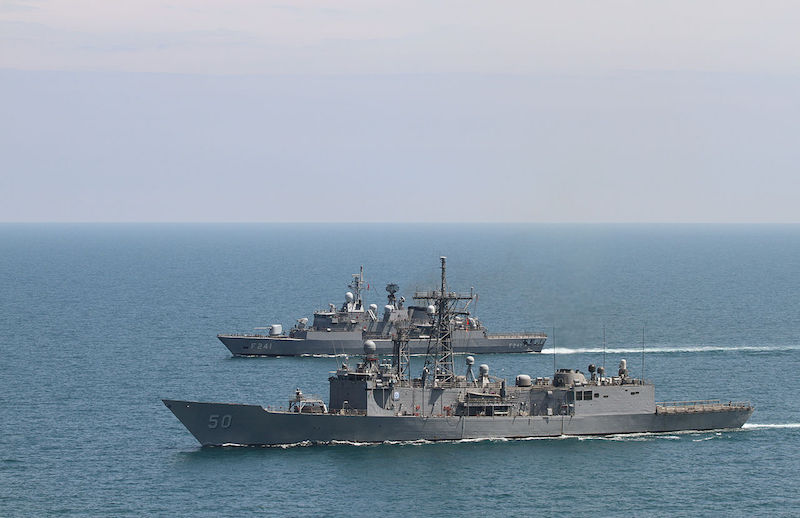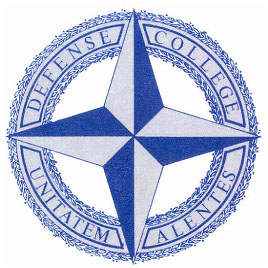Following a meeting between NATO Defence Ministers in mid-February, NATO Secretary General Jens Stoltenberg reaffirmed the Alliance’s commitment to strengthening the defence of its member states bordering the Black Sea, by ensuring an enhanced NATO naval presence in the region. Since the annexation of Crimea by Russia in 2014, which has led to increased Russian military forces in the Black Sea, NATO has reinforced its hold on the region through Operation Tailored Forward Presence (TFP), launched in the wake of the 2016 Warsaw Summit. However, as NATO and Russia have a common interest in the Black Sea region, it is necessary for both to attempt to prevent unnecessary military escalation.
The annexation of Crimea
Reasserting Russia’s presence in the Black Sea region through the annexation of Crimea in 2014 has profoundly shifted the previously existing balance of power. It has led to a re-enforcement of Russia’s Black Sea fleet, which will undergo a $2.4 billion modernization plan set to end in 2020. Modern air defence units and marine combatants are scheduled to be deployed in the Black Sea to re-enforce the currently existing fleet. Various coastal and air defence missile systems, such as the S300, the S400 Triumph along with the K300P Bastion-P, have also been deployed, increasing Russia’s anti-access/area denial (A2/AD) potential in the region.
Having a strong presence in the Black Sea is important for Russia, as it enables the latter to project greater power and influence in the Eastern Mediterranean Sea and the Balkans. This power projection capability was demonstrated in 2015, when Russia sent offensive and defensive missile systems to Syria from its Black Sea fleet. Furthermore, by boosting the Black Sea fleet’s A2/AD potential, Russia gradually developed capabilities which may enable it to limit NATO’s presence in the region in times of crisis.
Importance of the Black Sea for NATO
NATO member states bordering the Black Sea include Romania, Bulgaria, and Turkey. Following the NATO Warsaw summit of 2016, NATO members decided to increase their land, maritime, and air presence in the Black Sea Region to ensure the Alliance’s commitment to defending the territory of its southeastern members.
Through the TFP operation, a multinational brigade has been deployed in Romania while Romania’s Headquarters Multinational Division Southeast are currently coordinating multinational training and exercises. Similar to NATO’s deployment of battalions in the Baltic State, the importance of this force is partly symbolic: the multinational character of the operation signals that an attack or intimidation against one NATO member is equivalent to an attack on all. Romania is also home to the Aegis Ashore Ballistic Missile Defense site, located in Deveselu and operational since late 2016. Its purpose is to protect European NATO members from attacks outside of the Euro-Atlantic area, although Russia has long perceived the Aegis Ashore site as a threat to its strategic interests.
The TFP Operation will also expand the Alliance’s maritime presence in the region, enhancing situational awareness and deterrence. In January 2017, the Alliance’s Sea Shield exercise took place off the coast of Romania and involved various ships from NATO countries. The UK also announced it would send four Typhoon aircrafts to Romania to strengthen the air component of the TFP operation.
A moderate NATO presence
Unlike Operation ‘Enhanced Forward Presence,’ currently taking place in Poland and the Baltic States, the aim of the TFP Operation is not to prevent a Russian attack or the use of hybrid warfare on a NATO country bordering the Black Sea. Such an event would be very unlikely, as Russia would gain little from directly attacking Romania, Bulgaria, or Turkey. Rather, the aim of the TFP Operation is to reaffirm NATO’s presence and commitment in the region, while keeping an eye on Russia’s A2/AD capabilities and deployments.
NATO and Russia have a common interest in refraining from a military build-up and increased tension in the region, as it would only lead to further instability, and strategically harm both sides. NATO could potentially obstruct Russia’s freedom of passage through the Turkish Straits, which grants access to the Mediterranean Sea, and is a move Turkey has made in the past following Russian economic sanctions. In response, Russia could limit NATO’s presence in the Black Sea region and hinder the Alliance’s deployment capabilities through a full-fledged operational deployment of A2/AD missile systems. Both countries would undeniably lose from such a stand-off, which would only lead to greater turmoil between the Alliance and Russia. Therefore, to prevent the further military escalation, both NATO and Russia are in need of greater communication and transparency in the Black Sea region.
Photo: The U.S. Navy guided-missile frigate USS Taylor (FFG-50) and the Turkish frigate TCG Turgutries (F-241) conduct a tactical maneuvering exercise in the Black Sea (2012), by L.t. j.g. David Hancock via Wikimedia Commons. Listed under Public Domain.
Disclaimer: Any views or opinions expressed in articles are solely those of the authors and do not necessarily represent the views of the NATO Association of Canada.




